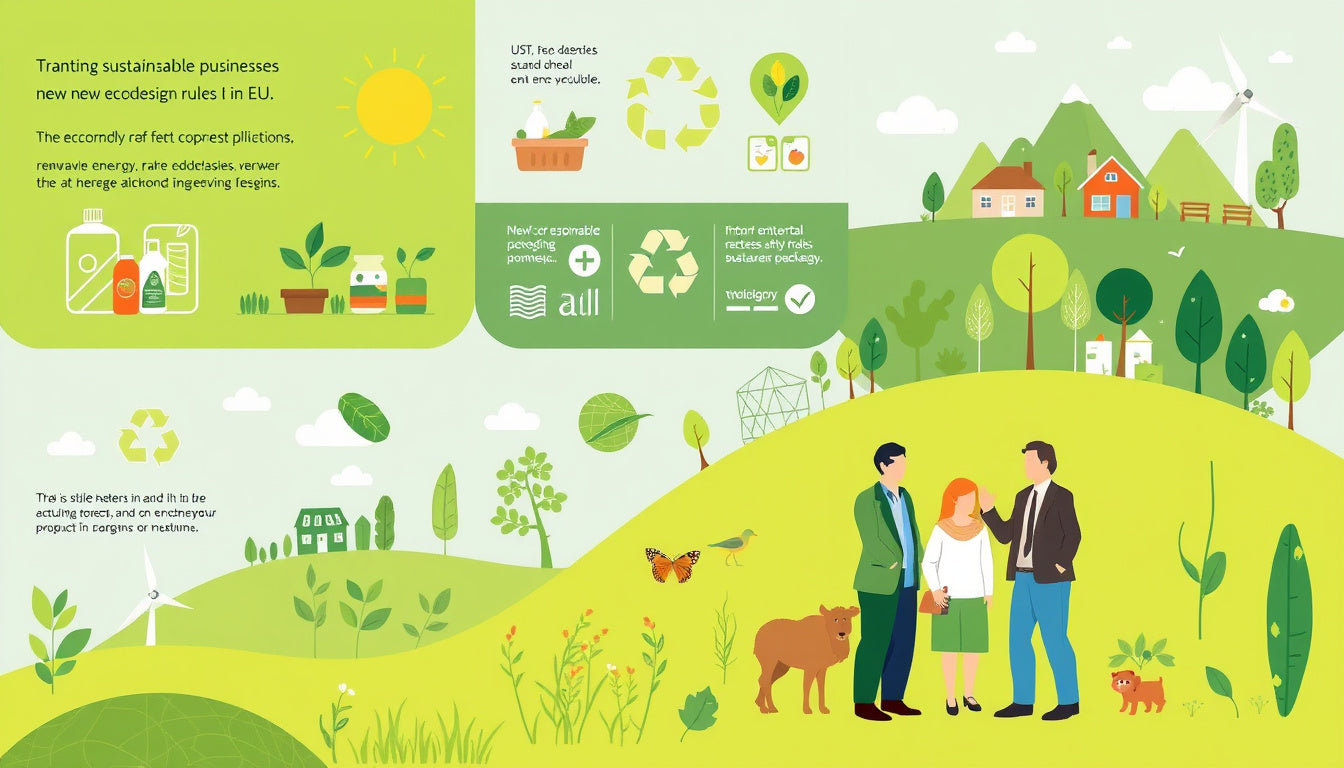The ‘E’ of ESG: New EU Ecodesign Rules for Unsold Consumer Products
Overview
The European Union now pushes new rules. These rules work under EU Ecodesign Regulation for Sustainable Products (ESPR 2024/1781). The aim is to ease environmental harm from unsold goods. The rules demand clear data and stop waste. They mark a key move for sustainable product care in the EU.
Scope and Applicability
-
Who is affected?
Both EU and non-EU companies that sell in the EU must follow these rules. -
Enterprise size focus:
- Big companies must meet the rules from 2026 (with reports on 2025 data).
- Medium-sized companies face them starting 19 July 2030.
-
Products covered:
The rules cover consumer items placed on the EU market. These items are tagged by the Combined Nomenclature.
Key Regulatory Highlights
-
Destruction Ban
From 19 July 2026, a ban stops wasting unsold goods. This ban works to cut environmental harm from the waste of surplus stock. It targets practices that have grown with online sales. -
Audited Transparency Requirements
Companies must share data on unsold goods every year. They must show:- How many and how much weight of items are discarded by type.
- The reasons behind each discard and any exceptions allowed.
- How waste is handled (reuse, recycling, recovery, or disposal).
- The steps taken or planned to lower future waste.
-
Disclosure Format and Assurance
- Reports must appear on the company website or in sustainability reports per the EU Accounting Directive.
- A standard format helps data stay clear and comparable across companies.
- Big companies with sustainability reports need limited assurance from an auditor or an accredited service.
-
Enforcement and Penalties
Each EU country sets its own fines for not following the rules. For example, in Germany, fines have hit up to EUR 50,000 per breach. Fines may also rise with profit-related issues.
Timelines and Legislative Process
- The ESPR went into force on 18 July 2024.
- By Q3 2025, the EU Commission will set out more detailed acts. These acts will explain transparency needs and exceptions to the ban.
- The new laws will align rules across all Member States. This step ends market gaps caused by different national laws.
Impact and Implications for Businesses
-
Increased Compliance Burden:
Companies, especially big sellers, must improve data tracking and reporting for unsold goods. -
Sustainability Push:
Firms are pushed to rework inventory systems and product lifecycles to reduce waste through reuse or recycling. -
Market Transparency:
Clear data helps regulators and consumers see how companies manage unsold products.
Conclusion
The EU’s new ecodesign rules change how businesses handle waste. They end the wasteful destruction of unsold goods and require clear, audited data. These steps boost eco-friendly consumption, cut waste, and create a fair market for all. Companies should start preparing now to meet these new demands and show their green commitment.
For more expert insights on sustainable product regulations and compliance, stay tuned to our blog.
Design Delight Studio curates high-impact, authoritative insights into sustainable and organic product trends, helping conscious consumers and innovative brands stay ahead in a fast-evolving green economy.






















0 comments